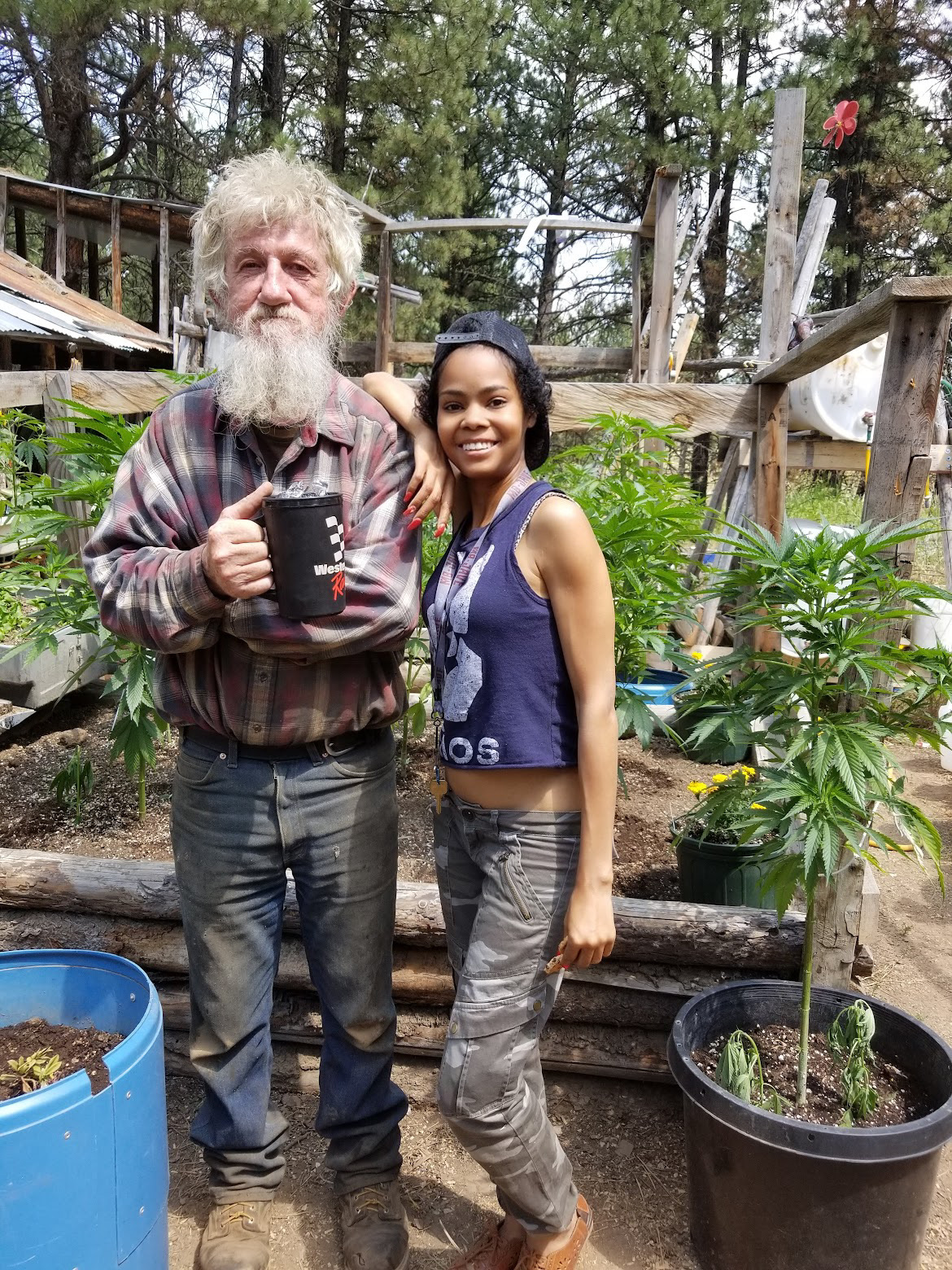Photo Credit : Amber Marie Green
She is black history as she is the first African American to be awarded an adult use retail cannabis license in the State of Oregon as well as the 2nd black woman to hold an adult use cannabis retail license in the country only after Wanda James.
Portia Mittons began her professional career as a civil engineer apprentice with Sargent & Lundy shortly upon graduating from the University of Illinois at Urbana Champaign in 2004. She quickly became disenchanted with having such a structured life and moved back to her hometown of Kankakee, IL in 2006. She then held a myriad of jobs as a ballet instructor, tax researcher and closing dept officer at Kankakee County Title Company, a manager of a retail cigar shop, Events Manager at Parent Power Chicago, a partnership with Big Boi (of Outkast) & Bobbi Dog Shampoo. Then on Jan 20, 2017 she was awarded an adult use cannabis retail license in Oregon and opened on January 31, 2017 with a woman partner. Being awarded this license made Portia the 1st African American to be granted an adult use retail cannabis license in the state of Oregon. Upon opening, Portia moved to Oregon from Illinois to hold the position of owner/operator of The Coughie Pot dispensary.
Portia joined the Bridge City Collective Illinois team in 2019 and moved back to IL in 2020. They’ve been awarded a conditional adult use dispensary, craft grow, and transportation licenses quite possibly making her the 1st black woman to hold multiple cannabis license types in multiple states. In March of 2022 Portia changed partners at The Coughie Pot dispensary while simultaneously increasing her ownership to 51% majority.
Portia, what made you decide to get into the cannabis industry?
Money (laughs out loud). The potential to make money. It was an opportunity back then that has now led to the awareness of the disparities within the cannabis industry for black people. When I decided to go to Oregon, I wasn’t even aware I was the first anything.
When you arrived in Sumpter, Oregon, what was your initial reaction?
I did not have any fears or doubts because I trust God and I trust my capabilities. But I was caught off guard like ‘Oh my God what did I get myself into?’.

How many black people lived in Sumpter?
Me
Is it true you lived in a one bedroom cabin for 2 years and worked 7 days a week in your dispensary while you lived in Sumpter, Oregon?
That’s partially true (laughs out loud), I actually stayed in a one ROOM cabin and worked 7 days a week for the first 2 years. Then I upgraded to a RV and worked 5 days a week.
Wow! What a sacrifice! What was your motivation to keep going especially when times got tough or just when you missed your family and friends?
I did not want to lose my investment and it was do or die at that point. And to be transparent with you, my partner at that time was not competent enough to run the business successfully. I love my people but they weren’t going to reimburse me for my loss.
What made you get into partnership with her?
God tricked me. God clearly had a plan to get me into this cannabis space and used this partnership as a vehicle. Because had I known what I was getting into prior, I would have not gone.
You are no longer in that partnership, correct?
That is correct.
So now you’re back in Illinois?
Correct.
What brought you back?
What brought me back home was that I was able to get the dispensary to run successfully without me. So I came back to try to get a license here in Illinois.
Were you successful in that venture?
Yes. Me and my team Bridge City Collective Illinois successfully won one license of each type; retail, craft grow, and transportation.
That is huge! Congratulations! You initially said “I got in the cannabis industry for the money”. Are you still in it for the money?
People who are in business aim to make money, so yes. Otherwise they do philanthropy. But it does not stop there. Since recognizing the disparities, shortcomings, ignorance, and lack of education surrounding cannabis I feel obligated to (help) do something about it.
I remember being at your July 2019 “Legit Trappin” Symposium. Is that what led you to create that event?
That was the catalyst because my goal was to give insight to the challenges I’ve faced in this space & useful information for those wanting to be in the space. There’s so much under the surface but I felt like doing something was better than nothing.

I have to ask. Are there any disparities within the Illinois cannabis industry that you can identify?
The whole industry. Not just Illinois, it’s across the country. It goes hand in hand with black history (inferring the “War on Drugs” & our being mishandled from the day the slaves were brought here to now). For example, the cannabis industry is very expensive to get into and most of us do not have the cash/capital and or access to it.
Then what is the solution Portia?
Just keep swimming. There is not one single solution because there is not one single problem. We just have to keep chipping away at the disparities to even the playing field.
What is next for Portia Mittons?
I’m still trying to figure that out. What I can say is that my passion, my why, is changing. Of course I want to be successful but I moreso want to be impactful. That is why I volunteer my time for both the Oregon & Illinois trade association boards.
